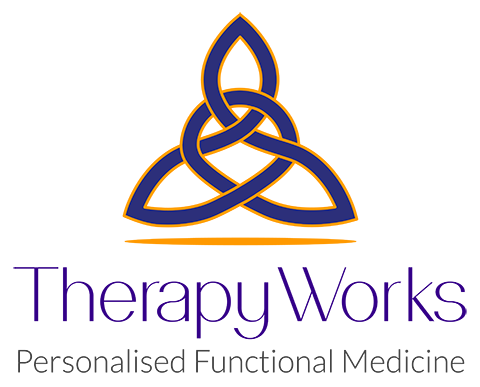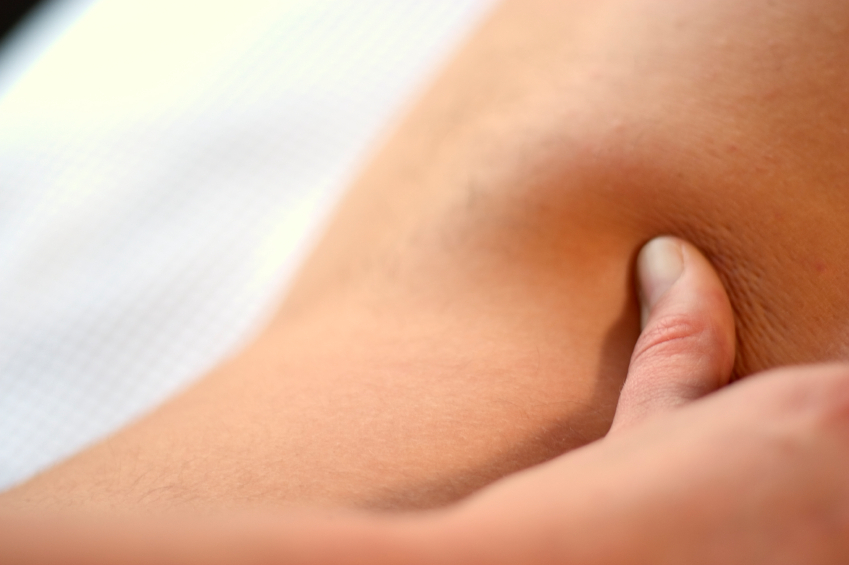Trigger Point Therapy Sydney
Exploring the benefits of trigger point therapy for pain relief
Have you ever had that feeling during a massage, when the therapist pushes into a small, but painful area of muscle, and your body sings out “YES! That’s the spot!”? It’s likely the therapist found a trigger point, a small nodule or knot of contracted muscle fibres.
Unexplained aches and pains are often caused by these trigger points, which refer pain along nerve pathways and within bodily structures. A pain in your elbow may actually be caused by an active trigger point in your shoulder, and will only respond to treatment of that trigger point, rather than any treatment at the site of the pain.
Trigger points and their referred pain pathways have set patterns which have been mapped. If you are experiencing referred pain, your therapist will be able to trace it to the associated trigger point for treatment.
In this article we discuss trigger point therapy, its benefits, and commonly helped conditions. Please read on to learn more, or contact TherapyWorks today to book a trigger point consultation.
What is trigger point therapy?
Trigger point therapy is a form of massage therapy that involves applying pressure to tender muscle tissue in order to relieve pain and dysfunction in other parts of the body.
It is based on the discovery that certain points in the muscles can trigger pain in seemingly unrelated parts of the body, a concept known as referred pain.
This therapy is often used to treat musculoskeletal pain and is believed to be effective in reducing muscle tension and improving circulation in the affected areas.
Treatment
Concentrated pressure is applied at the trigger point, to release the contracted muscle fibres.
At TherapyWorks, this pressure is applied through massage or dry needling or true Acupuncture.
The therapy is fast and effective, and pain can be removed or significantly reduced within 1 to 6 sessions.
Trigger point therapy is usually used in conjunction with remedial massage and acupuncture.
Commonly helped conditions
Conditions which may be treated with trigger point therapy:
- Chronic sports injuries
- Headaches
- Carpal Tunnel Syndrome
- Tennis / Golfer’s Elbow
- Back pain
- Hip and Neck Pain
- Stress and Fatigue
- Plantar Fasciitis
- Overall pain management.
Specific trigger point areas
Shoulder trigger point therapy
Shoulder trigger point therapy focuses on relieving pain and tension in the shoulder muscles by applying pressure to specific tender areas. This technique aims to release muscle knots and improve shoulder mobility, often providing relief from pain caused by stress, overuse, or injury. It can be used in the treatment of frozen shoulder. It’s a targeted approach within the broader scope of massage therapy, designed to address the root cause of shoulder discomfort.
Fibromyalgia trigger point therapy
Trigger point therapy for fibromyalgia targets specific areas of muscle tension and pain. This therapy aims to alleviate widespread pain and improve quality of life for those with fibromyalgia by releasing knots in muscles and reducing the intensity of the chronic pain commonly associated with the condition.
Myofascial trigger point therapy
Myofascial trigger point therapy involves identifying and applying pressure to trigger points within the myofascial tissue to alleviate pain and restore mobility.
Myofascial tissue is a thin, strong, fibrous connective tissue that extends throughout the body, providing support and protection to muscles and bones.
This therapeutic approach targets the connective tissue that surrounds muscles, aiming to release tension and reduce discomfort associated with chronic pain conditions, improving overall physical function and well-being.
Piriformis trigger point therapy
Piriformis trigger point therapy targets the piriformis muscle in the buttocks, which can cause sciatica-like pain.
The therapy involves applying pressure to relieve muscle tension and reduce nerve irritation.
It’s effective for alleviating discomfort and improving mobility, especially for those suffering from piriformis syndrome, characterised by pain in the buttocks radiating down the leg.
Trigger point therapy FAQs
What is the most effective treatment for trigger points?
For trigger points, treatments such as dry needling and acupuncture, which involves inserting fine needles into the trigger points to relieve muscle tension and pain, are commonly practised.
Additionally, manual therapies, including massage and physical therapy techniques, are often used to manage trigger points by increasing blood flow, reducing muscle tension, and promoting healing in the affected areas.
Trigger point therapy massage can also be used, which is a combination of remedial massage and specific trigger point releases.
The effectiveness of treatment may vary depending on your specific condition, overall health, and response to therapy.
What are the advantages of trigger point therapy?
Trigger point therapy offers a range of benefits for individuals dealing with various forms of discomfort and physical limitations.
- One of the primary advantages is the potential for immediate myofascial pain relief, which can significantly manage chronic pain, thereby improving one’s quality of life and range of motion.
- The therapy may also contribute to fewer headaches by treating trigger points in the neck and upper back, which are often linked to migraines and tension headaches. By actively receiving treatment, the frequency of these headaches can be reduced.
- Additionally, trigger point therapy may lead to improved posture by releasing muscle knots that shorten and tense muscles, thus contributing to pain and discomfort over time.
- Another significant benefit is the release of toxins that build up in trigger points, enhancing the body’s ability to flush out these toxins, thereby promoting better hydration and reducing muscle soreness after a workout.
- Trigger point therapy may also have a calming effect on the nervous system, making it a beneficial treatment for those looking to reduce the effects of daily stress and improve their mental state.
Trigger point therapy in Australia is a sought-after treatment for those suffering from musculoskeletal pain.
What are the disadvantages of trigger point therapy?
Trigger point therapy, while beneficial for many, has its set of disadvantages that potential recipients should be aware of.
- One significant drawback is the variability in effectiveness; what works well for one person might not yield the same results for another due to individual body differences.
- The therapy can sometimes be painful, as it involves applying pressure to sensitive muscle areas, which might be uncomfortable or even intolerable for some individuals, depending on their pain threshold and the severity of their muscle tension.
- Another issue is the potential for post-treatment lethargy. The release of trigger points can lead to the discharge of pain-inducing chemicals into the bloodstream, causing feelings of fatigue and lethargy, which might last one or two days after the session.
While it can provide temporary relief from muscle tension and pain, it might not address the root causes of trigger points, such as poor posture, repetitive motions, or chronic stress, leading to the possibility of their recurrence and the need for ongoing treatment.
That’s why at TherapyWorks, we take a functional medicine approach to your healthcare.
We provide YOU with a PERSONALISED treatment plan that addresses your individual health issues in a holistic way. We address the cause of the problem, not the symptom. We treat the person, not just the disease.
What does pressing on a trigger point feel like?
Pressing on a trigger point typically feels sore and sensitive to pressure, primarily in muscles, and the pain is often described as dull, aching, and nagging.
The discomfort mainly occurs in a specific area, and while there may not be a clear mechanism of injury, flare-ups often occur in response to extremes of position, exercise, or temperature.
The experience of pressing on a trigger point can vary significantly among individuals, influenced by the severity of the trigger point itself and the individual’s pain threshold.
In some cases, touching a trigger point may elicit a phenomenon known as a “jump sign,” a reflexive response to the pressure. Trigger points can complicate injuries and other painful problems, showing up unexpectedly and making existing issues worse.
Should I massage my trigger points?
Massaging trigger points can help ease muscle tightness and pain. It involves applying gentle pressure to sensitive areas within the muscles, which may feel sore or tender.
The goal is to achieve a “release,” leading to reduced sensitivity and softer tissue texture.
However, approach with caution to avoid aggravating the area. It’s beneficial to address the root causes of the trigger points, such as stress or posture issues, for lasting relief.
Consulting with healthcare professionals, such as the team at TherapyWorks, is advisable. Therapy Works has a wonderful blend of diverse modalities and practitioners whose main interest is your wellbeing in mind, body and spirit.
What makes trigger points worse?
Trigger points worsen with exertion overload, repetitive stress, biomechanical imbalance, and postural issues. Muscle trauma, referred pain, increased muscle tension from stress, structural inadequacies, nutritional deficiencies, metabolic disorders, chronic infections, and viral diseases also contribute.
Addressing underlying causes is essential for managing and preventing worsening trigger point issues.
Are knots and trigger points the same thing?
Muscle knots and trigger points are related but not identical.
- Knots refer to areas of muscle that feel tight, tense, and can be felt as nodules.
- Trigger points are specific knots that cause pain in other areas when pressed, a phenomenon known as referred pain.
Both can contribute to muscle discomfort and require different approaches for relief.
Key points:
- Trigger point therapy at TherapyWorks is performed in combination with other clinical therapies for effective pain relief, utilising modalities such as massage, dry needling, and acupuncture to address various conditions.
- The therapy focuses on relieving pain through pressure on trigger points, which are contracted muscle fibres causing referred pain in distant body parts.
- Common conditions treated include chronic sports injuries, headaches, carpal tunnel syndrome, back pain, and stress, with potential for significant pain reduction within 1 to 6 sessions.
Trigger point therapy Sydney
Get in touch with the team at TherapyWorks today and find out how we may help you and your family.
Please phone us on the number below or leave a message in the contact form.
- What are Acupoints? - 12 December 2023
- What is Complementary Medicine Used For? - 20 August 2022
- Auriculotherapy Ear Acupuncture - 21 July 2022




Leave a Reply
Want to join the discussion?Feel free to contribute!